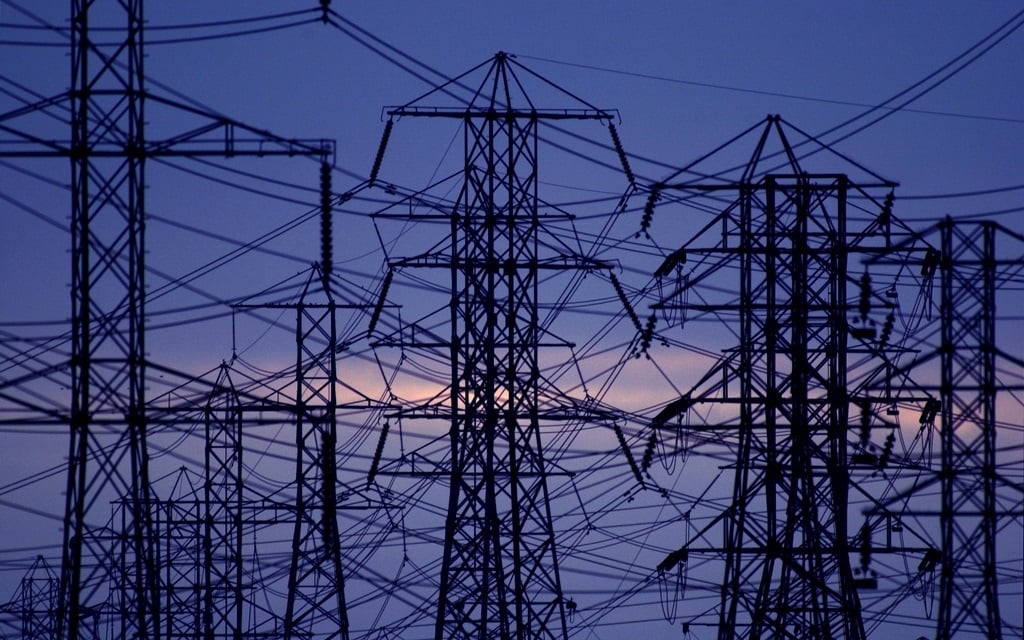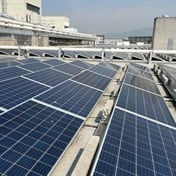
Private sector businesses like Vodacom and Discovery have shared how their journeys to net-zero carbon emissions are also helping South Africa and other customers in addressing the current electricity crisis, write Linsey Dyer and Chris Yelland.
- For climate change news and analysis, go to News24 Climate Future.
Private sector businesses recently shared how their own journeys to net-zero carbon emissions took them on unexpected paths, which help them not only to reach their own Environmental, Social and Governance (ESG) goals, but also help South Africa and other customers in addressing the current electricity crisis.
These companies are taking advantage of impending changes to the structure and legislation regulating South Africa's electricity supply industry as the country moves toward a more open, diversified and competitive electricity generation sector, with a state-owned independent transmission system operator, and an independent electricity market operator.
Limitations of previous arrangements
In the past, South Africa's electricity supply industry operated essentially under a "single buyer" model. In this arrangement, Eskom (the single buyer) generated electricity itself for supply to customers across the country. It also contracted to procure electricity from neighbouring countries and Independent Power Producers (IPPs) to supplement its own generation capacity.
While the reliability, performance and availability of both the ageing and new Eskom coal-fired power stations have deteriorated sharply over the last decade, the regulatory, planning and procurement processes under the single buyer model have proved to be slow, cumbersome and bureaucratic.
Eskom and the IPP Office of the Department of Mineral Resources and Energy (DMRE) have singularly failed to build or contract new generation capacity in a timely manner. As a result, South Africa has experienced high levels of load shedding over the last few years.
READ | ANALYSIS | How Eskom's new 'virtual wheeling' is a game changer
To manage and address these risks, the single buyer model has been moving in an evolutionary way to include traditional one-to-one wheeling of power. This is contracted by large customers (the offtakers) from IPPs (the generators), while paying the grid operator (Eskom) a use-of-system or wheeling fee.
Traditional wheeling has been limited to large, energy-intensive, industrial and mining offtakers connected to the Eskom grid, who contract with IPPs for the supply of renewable energy on long-term power purchase agreements (PPAs) or contracts.
Grid access constraints and the long-term nature of the PPAs have significantly delayed and limited the uptake of new generation capacity in traditional, one-to-one wheeling arrangements.
While traditional wheeling of electrical energy has been further evolving to include many-to-one, and one-to-many wheeling arrangements - with offtakers generally in a single corporate group structure - the same limitations of one-to-one wheeling in these broadened arrangements largely continue to inhibit the uptake of new generation capacity.
The emergence of third-party electricity traders
To address these limitations, the regulatory processes in South Africa have adapted to recognise the value-adding role of third-party electricity traders. They must be registered with and obtain a trading licence from the National Energy Regulator of South Africa.
Third-party electricity traders generally contract renewable energy from one or more generators to supply electricity to a diversified portfolio of offtakers that may include group(s) of companies within a corporate structure, as well as individual independent companies. Eskom also charges a use-of-system or wheeling fee as previously.
Electricity traders play a key role in supply and demand aggregation, that reduces the risk and the long PPA terms associated with traditional, one-to-one wheeling arrangements. This provides greater flexibility and customer choice, which allows for the participation of smaller, independent customers.
READ | Discovery to use its maths skills to match renewable demand and supply
Third-party electricity trading arrangements have largely been limited to customers connected to the Eskom grid because almost all municipal electricity distributors are not able to cope with the complexity of changes required. This includes contractual arrangements with their customers, and with tariff, billing and metering system changes.
The development of 'virtual wheeling'
To address the above limitations and to make traditional wheeling and third-party electricity trading more widely accessible to different enterprises - including those within municipal distribution networks - Eskom, together with private sector players are developing and piloting what has become known as "virtual wheeling".
With virtual wheeling, the trader contracts with one or more IPPs to generate electricity into the Eskom grid at a negotiated pricing structure.
The renewable energy generated by the IPP into the Eskom grid is metered, and the power utility pays the trader monthly for the renewable energy supplied by the IPP into the grid. The trader, in turn, pays the IPP.
With virtual wheeling, a customer's existing commercial and contractual arrangement with their electricity supplier (either Eskom Distribution or a municipality electricity distributor) does not change.
The customer continues to receive and pay the monthly electricity bill from its electricity supplier. However, the customer additionally contracts some or all of its renewable energy needs from an electricity trader under a PPA for lower-cost renewable energy compared to that supplied by the electricity distributor.
Under the virtual wheeling mechanism, after paying for the electricity supplied and metered exactly as usual by the electricity supplier - the customer, in due course, receives a rebate from the trader based on that portion of lower-cost renewable energy contracted with the trader. This is a data-based financial reconciliation and settlement mechanism enabled by the aggregation power of the virtual wheeling platform.
The innovators and their journeys
Existing and emerging electricity traders and platforms include those of early pioneers such as PowerX; corporate traders initially established to serve their own corporate groups such as Remgro's Energy Exchange of Southern Africa, Old Mutual's NOA Group, Shoprite's Independent Energy Pool and Anglo American and EDF's Envusa Energy; regional electricity traders such as Africa GreenCo; and others such as Enpower Trading, Etana Energy and Apollo Africa.
In general, electricity traders have needed strong backing from financial institutions with deep pockets to deal with the trading, timing and settlement risks involved.
Furthermore, two specific examples of companies are playing a significant catalytic and formative role in the evolution of the virtual wheeling and trading environment in South Africa, namely the Vodacom and Discovery Groups.
Vodacom, one of South Africa's leading wireless voice and data network providers, has facilities including some 15 000 cellular network towers around South Africa.
The company needs to be supplied with renewable energy to reduce its carbon footprint and hedge at least part of its electricity costs from the ever-increasing price of electricity from Eskom and municipal electricity distributors.
READ | Cape Town wheeling pilot kicks off R65m rooftop solar project - the size of 3 rugby fields
Vodacom understood early in its journey to net-zero that it was not possible to meet its ambition of sourcing 100% of its energy from renewable energy rather than through self-generation at its facilities. Vodacom's energy-hungry access networks, technology centres and properties represent 73%, 23% and 4% of its energy consumption, respectively.
Most of Vodacom's sites are embedded within about 180 municipal electricity supply networks throughout South Africa, with limited ground and rooftop space for self-generation by solar PV and battery storage.
This made self-generation, traditional wheeling and trading arrangements impossible. Vodacom, therefore needed to take a different approach to reach its ESG targets.
To address its own challenge, Vodacom, in association with Eskom and Mezzanine (a Vodacom business solutions and software platform developer), co-created a "virtual wheeling" platform – a digital tool to collect, aggregate, account, process and report data for time-of-use (TOU) electrical energy generation and consumption.
The framework and platform developed would also be usable by other traders and suppliers.
Similarly, several years ago, Discovery, a leading financial services organisation, also realised it was not going to reach its net-zero goal by 2030 by installing embedded generation on its campuses.
Discovery understood that only 8% of its greenhouse gas (GHG) emissions were so-called Scope 1 emissions (i.e. emanating from its own operations), while 92% derived off-site from its Scope 2 emissions from consumption of Eskom coal-fired electricity. Discovery found that many other corporates were in a similar position, with average Scope 2 emissions per corporate exceeding 350 000 tonnes per annum.
Furthermore, Discovery realised that if it could address its own electricity cost containment and ESG needs through innovative renewable energy supply arrangements, it could also provide similar green energy supply solutions for customers with whom it had deep, existing business relationships through its healthcare, insurance, property, banking and other financial services.
READ | Renewable energy wheeled onto Cape Town's grid for the first time
Discovery was quick to realise the opportunity that the virtual wheeling framework provided in addressing not only its own ESG needs but also those of its corporate customers. To achieve this, Discovery Green was launched as a platform that would use the virtual wheeling framework.
Discovery Green's value proposition is five-fold: the offering would be affordable, renewable, price certain, supporting the national shortfall, and with seamless customer onboarding (in contrast to the unwieldy, protracted negotiations often required for traditional PPAs).
This virtual wheeling framework and platform developed addresses some of the key constraints of traditional wheeling, such as its non-suitability for "smaller" customers supplied at low voltage and embedded within municipal networks – which includes most business and residential customers in South Africa.
Another benefit is that, unlike traditional electricity wheeling and trading arrangements, the virtual wheeling framework does not require any amendments to existing electricity supply contracts with the municipal distributor, or changes to the municipal tariffs, metering and billing systems.
Initial piloting of the virtual wheeling framework is underway by Eskom. In addition, further refinements are being considered to reduce the trading, timing and settlement risks, the risk of Eskom payment default, and the risk of deterioration in the financial status of municipalities in good standing with Eskom.
However, despite this further work, virtual wheeling shows great promise in expanding access by customers to renewable energy, reducing their carbon footprint, containing and reducing their electricity cost increases, and bringing new, clean generation capacity to the grid.
Who benefits besides large corporates?
Virtual wheeling opens the door to electricity supply choice, reduced electricity costs and retail competition, not only for large corporates but ultimately also for small, medium and micro enterprises and residential customers in municipalities in good standing with Eskom.
Eskom benefits by increasing its supply of low-carbon electricity relatively quickly to supplement its own sources of generation and fill the gap at little or no capital cost. This means it also reduces its usage of high-cost emergency, diesel-powered, open-cycle gas turbines.
Municipalities benefit by maintaining and growing their existing electricity supply arrangements without reducing or compromising their electricity supply revenue streams. Municipalities rely on these revenues for their sustainability, and since municipalities cross-subsidise other services with these revenues, this represents a critical requirement in continued service delivery across the country.
Virtual wheeling incentivises municipalities to pay their arrear debt to Eskom to benefit from the access that customers embedded in municipal networks will have to the arrangement. This, in turn, incentivises customers supplied by municipal electricity distributors to pay their electricity bills to benefit from the green credentials available to them.
By leveraging the power of markets, innovating private sector companies are driving fairer and more inclusive solutions which will benefit all energy stakeholders – Eskom, IPPs, traders, businesses, municipalities, and their "smaller" electricity customers.
Ultimately, everyone in South Africa benefits from a more open, diversified and competitive electricity generation sector that increases electricity supply and reduces load shedding.
© Copyright 2023 – EE Business Intelligence (Pty) Ltd. All rights reserved. This article may not be published without the written permission of EE Business Intelligence.
News24 encourages freedom of speech and the expression of diverse views. The views of columnists published on News24 are therefore their own and do not necessarily represent the views of News24.




 Publications
Publications
 Partners
Partners












